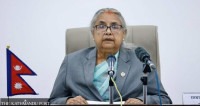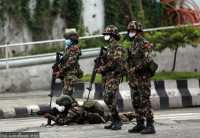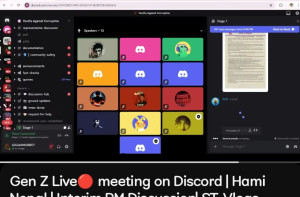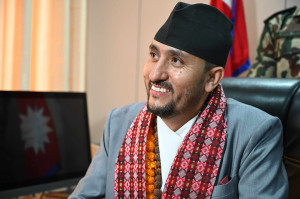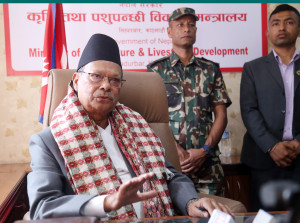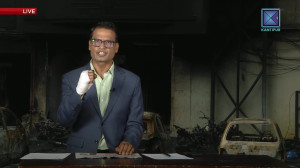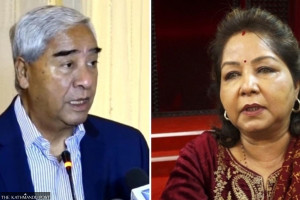Politics
Poll body’s attempt to enforce self-evaluation draws parties’ flak
Ruling CPN-UML and Nepali Congress say party evaluation is their internal affair protected by constitution.
Anil Giri
Political parties across the spectrum have opposed the “Political party self-evaluation procedure—2082” proposed by the Election Commission.
The commission recently proposed a lengthy new set of guidelines for registered political parties to conduct their own evaluations, which would later be verified by the commission. The guidelines also include several provisions that, according to experts, contradict existing laws and the constitution.
Senior leaders of the Nepali Congress, CPN-UML, and nine other opposition parties have opposed the new provision. The commission had forwarded a draft to all registered political parties seeking their feedback on the proposed procedure.
On Thursday, the UML wrote to the commission, formally expressing its disagreement, the party said in a statement.
UML General Secretary Shankar Pokharel sent the letter, clearly stating the party’s position on the procedure. In the letter, Pokharel emphasised that self-evaluation is an internal matter of political parties.
“Articles 269 to 272 under Part 29 of the Constitution of Nepal has provisions related to political parties. The formation, registration, and operation of political parties must align with the principles of party autonomy and independence, and reflect the aspirations of the people. Therefore, political parties must be self-regulated, and their evaluation must be done by the people through electoral mandates,” he said in the letter to the commission.
On a principled basis, the UML has expressed its disagreement with the proposed self-evaluation procedure, asserting that it falls under the internal domain of the parties, reads the statement by the party.
Another ruling party, the Nepali Congress, has also objected to the procedure and has already lodged its complaint with the commission, said the party’s general secretary, Bishwa Prakash Sharma. The party has entrusted leader Puspha Bhusal to take up the matter with the commission, said Sharma.
“The procedure is flawed and goes against the letter and spirit of the constitution. Although the Election Commission is a constitutional body, it is an administrative one. It cannot dictate to political parties. The constitution, law and election law guide the political parties, not the commission. People evaluate political parties, not the election commission or the parties themselves,” Sharma told the Post.
On Thursday, 10 opposition parties also issued a joint statement expressing concern over the proposed procedure.
“We, the political parties, have taken serious note of the draft of the Political party self-evaluation procedure–2082 prepared by the Election Commission, which directly affects the autonomy of political parties, the values of democracy, and constitutional norms.”
“This procedure is contrary to the constitution and the Political Parties Act. By misusing federal law and, in the name of delegated legislation, by drafting a law akin to a separate act, the Election Commission has tried to encroach on the jurisdiction of the federal parliament. We express our clear disagreement, and protest against this,” the parties said in the joint statement.
The parties that signed the statement are CPN (Maoist Centre), Rastriya Swatantra Party, Rastriya Prajatantra Party, CPN (Unified Socialist), Janata Samajbadi Party, Janata Samajbadi Party-Nepal, Janamat Party, Loktantriak Samajbadi Party, Nagarik Unmukti Party, and Aam Janata Party.
“This tendency, which undermines the foundation of multiparty democracy and seeks to interfere with the internal freedom of political parties, is unacceptable,” the parties said. “Therefore, we, the political parties, have collectively reached a common understanding that this procedure, under no circumstances, will be acceptable.”
“We express serious disagreement with this draft on the following constitutional, legal, and political grounds,” the statement continues. “The constitutional structure established through the long struggle of the Nepali people has internalised multiparty competitive democracy, where party autonomy and political competition are foundational principles of the state.”
“However, in this draft, the administrative leadership of the commission has proposed provisions for the evaluation, operation, supervision, and direction of political parties, which undermine the autonomy of political parties and create a pathway to control and potentially exclude parties from fair competition.”
The preamble of the procedure cites Section 61 of the Political Parties Act, 2073, as its basis.
However, that provision only allows for the preparation of directives and procedures necessary for the implementation and enforcement of the Act, the parties have argued.
“Thus, creating a separate and structurally distinct procedure with a different purpose is not permissible. This draft contradicts the fundamental principle of delegated legislation by re-delegating delegated powers, creating a separate administrative authority using state resources, expanding the commission’s authority beyond what federal law provides, and restricting the rights of political parties in a regulatory manner.”
“Therefore, through this joint press statement, we, the political parties, would like to caution the commission that the process of advancing the draft procedure should be immediately stopped,” the ten parties said, adding that the constitution, existing laws, democratic values, and the rule of law must be respected.
“Finally, we would like to state that we will be compelled to take political and legal actions against this if necessary,” they have warned in the letter to the Election Commission.
Assistant spokesperson for the commission, Durga Prasad Chalise, said that election commissioners will discuss the issue with leaders of political parties.
“We are aware that political parties have expressed some reservations over the draft proposal,” said Chalise, “Keeping those reservations in mind, the commission will consult the political parties and take the right decision.”




 17.62°C Kathmandu
17.62°C Kathmandu
